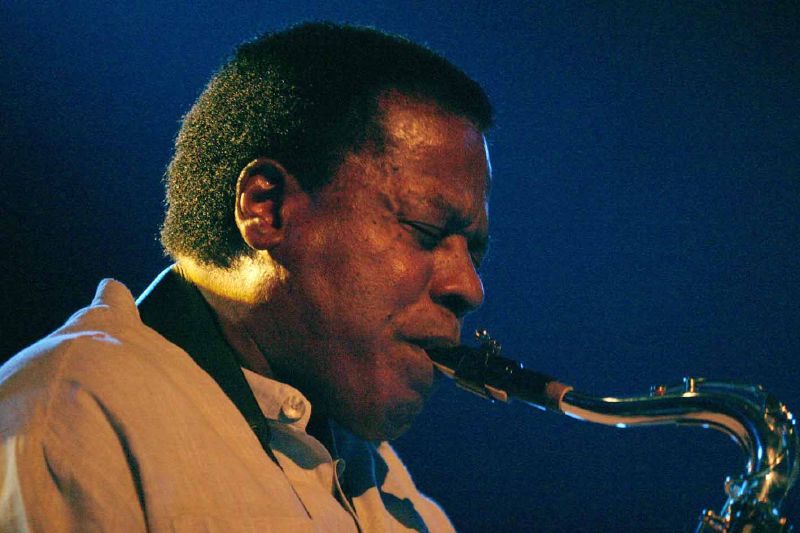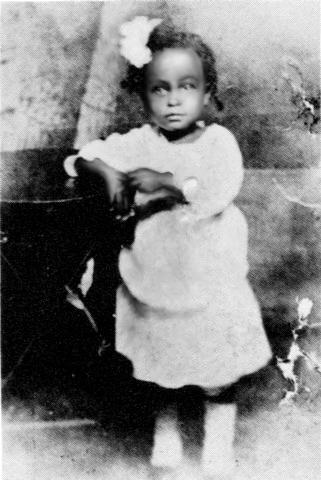|
Afro Straight
''Afro Straight'' is an album by saxophonist Ernest Dawkins. It was recorded during October 2010 and April 2012, and was released in 2012 by Delmark Records. On the album, which features eight jazz standards and two original compositions, Dawkins is joined by trumpeter Corey Wilkes, pianist Willerm Delisfort, organist Ben Paterson, bassist Junius Paul, drummer Isaiah Spencer, and percussionists Ruben Alvarez, Greg Carmouche, and Greg Penn. Reception In a review for '' All About Jazz'', Mark Corroto wrote: "''Afro Straight'' is Saturday music. That day following a work week where you take off your suit and tie or uniform, and put on that favorite sweatshirt and pair of jeans to kick back and relax in the familiar confines of your home. The familiar is your solace, and saxophonist Ernest Dawkins delivering time-honored standards is the equivalent of comfort food for the ears." John Garratt of ''PopMatters'' stated: "''Afro Straight'' is so much more than a standard album of standar ... [...More Info...] [...Related Items...] OR: [Wikipedia] [Google] [Baidu] |
Ernest Dawkins
Ernest Dawkins (born 2 November 1953 in Chicago, Illinois, United States) is an American jazz saxophonist, principally active in free jazz and post-bop. Ernest Khabeer Dawkins was a neighbor of Anthony Braxton as a child. He played bass and drums early in life before switching to saxophone in 1973. During that decade he began studying with members of the Association for the Advancement of Creative Musicians, such as Joseph Jarman and Chico Freeman, as well as at the Vandercook College of Music. He worked with Ed Wilkerson and the Ethnic Heritage Ensemble and Douglas Ewart before founding his own New Horizons Ensemble, which played regularly in Chicago into the 2000s, as well as at jazz festivals and on tour in Europe. Discography As leader *''After the Dawn Has Risen'' (Open Minds, 1992) *'' South Side Street Songs'' (Silkheart Records, 1994) *'' Chicago Now Vol. 1'' (Silkheart, 1995) *'' Chicago Now Vol. 2'' (Silkheart, 1997) *'' Mother's Blue Velvet Shoes'' (Dawk, 1998) *'' ... [...More Info...] [...Related Items...] OR: [Wikipedia] [Google] [Baidu] |
Woody 'n' You
"Woody 'n' You", is a 1942 jazz standard written by Dizzy Gillespie as an homage to Woody Herman. It was one of three arrangements Gillespie made for Herman's big band, although it was not used at the time; the other two were "Swing Shift" and "Down Under". It was introduced on record in 1944 by Coleman Hawkins initiated by Budd Johnson, Hawkins' musical director of his 12-man orchestra that included the bebop pioneers Oscar Pettiford, Max Roach and Gillespie. Structure The 32-bar composition is in AABA form. The A section "consists of three two-measure sequences on ii-V chords, ending on the tonic (D)": Gm7(5) – C7(9) – Fm7(5) – B7(9) – Em7(5) – A7(9) – Dmaj9 Covers *Miles Davis recorded the song three times, ''Miles Davis Volume 1'', '' Relaxin' with the Miles Davis Quintet'', and the rare ''Amsterdam Concert''. *Hampton Hawes played it in 1956 in his '' All Night Session! Vol. 2''. *Sonny Rollins played the song on his ''A Night at the Village Vanguard'' live album in ... [...More Info...] [...Related Items...] OR: [Wikipedia] [Google] [Baidu] |
2012 Albums
The following is a list of Album, albums, Extended play, EPs, and Mixtape, mixtapes released in 2012. These albums are (1) original, i.e. excluding Reissue, reissues, Remasters, remasters, and Compilation album, compilations of previously released recordings, and (2) WP:MUS, notable, defined as having received significant coverage from reliable sources independent of the subject. For additional information for deaths of musicians and for links to other music lists, see 2012 in music. First quarter January February March Second quarter April May June Third quarter July August September Fourth quarter October November December References {{Albums by release date 2012 albums, 2012-related lists, Albums Lists of albums by release date, 2012 ... [...More Info...] [...Related Items...] OR: [Wikipedia] [Google] [Baidu] |
Footprints (composition)
"Footprints" is a jazz standard composed by saxophonist Wayne Shorter and first recorded for his album '' Adam's Apple'' in 1966. The first commercial release of the song was a different recording on the Miles Davis album '' Miles Smiles'' recorded later in 1966, but released earlier. It has become a jazz standard. Rhythm Although often written in or , it is not a jazz waltz because the feel alternates between simple meter and compound meter. On '' Miles Smiles'', the band playfully explores the correlation between African-based (or ) and . Drummer Tony Williams freely moves from swing, to the three-over-two cross rhythm—and to its correlative. The ground of four main beats is maintained throughout the piece. The bass switches to at 2:20. Ron Carter’s figure is known as ''tresillo'' in Afro-Cuban music and is the duple-pulse correlative of the figure.Peñalosa, David (2010: 43). ''The Clave Matrix; Afro-Cuban Rhythm: Its Principles and African Origins''. Redway, ... [...More Info...] [...Related Items...] OR: [Wikipedia] [Google] [Baidu] |
Arthur Herzog Jr
Arthur is a common male given name of Brythonic origin. Its popularity derives from it being the name of the legendary hero King Arthur. The etymology is disputed. It may derive from the Celtic ''Artos'' meaning “Bear”. Another theory, more widely believed, is that the name is derived from the Roman clan '' Artorius'' who lived in Roman Britain for centuries. A common spelling variant used in many Slavic, Romance, and Germanic languages is Artur. In Spanish and Italian it is Arturo. Etymology The earliest datable attestation of the name Arthur is in the early 9th century Welsh-Latin text ''Historia Brittonum'', where it refers to a circa 5th to 6th-century Briton general who fought against the invading Saxons, and who later gave rise to the famous King Arthur of medieval legend and literature. A possible earlier mention of the same man is to be found in the epic Welsh poem ''Y Gododdin'' by Aneirin, which some scholars assign to the late 6th century, though this is still a mat ... [...More Info...] [...Related Items...] OR: [Wikipedia] [Google] [Baidu] |
Billie Holiday
Billie Holiday (born Eleanora Fagan; April 7, 1915 – July 17, 1959) was an American jazz and swing music singer. Nicknamed "Lady Day" by her friend and music partner, Lester Young, Holiday had an innovative influence on jazz music and pop singing. Her vocal style, strongly inspired by jazz instrumentalists, pioneered a new way of manipulating phrasing and tempo. She was known for her vocal delivery and improvisational skills. After a turbulent childhood, Holiday began singing in nightclubs in Harlem, where she was heard by producer John Hammond, who liked her voice. She signed a recording contract with Brunswick in 1935. Collaborations with Teddy Wilson produced the hit "What a Little Moonlight Can Do", which became a jazz standard. Throughout the 1930s and 1940s, Holiday had mainstream success on labels such as Columbia and Decca. By the late 1940s, however, she was beset with legal troubles and drug abuse. After a short prison sentence, she performed at a sold-out conce ... [...More Info...] [...Related Items...] OR: [Wikipedia] [Google] [Baidu] |
God Bless The Child (Billie Holiday Song)
"God Bless the Child" is a song written by Billie Holiday and Arthur Herzog Jr. in 1939. It was first recorded on May 9, 1941, by Billie Holiday and released by the Okeh Records in 1942. Holiday's version of the song was honored with the Grammy Hall of Fame Award in 1976. It was also included in the list of ''Songs of the Century'', by the Recording Industry Association of America and the National Endowment for the Arts. Billie Holiday recording sessions Billie Holiday recorded the song three times. First recording (Session #44, Columbia/Okeh): Columbia Studio A, 799 Seventh Avenue, New York City, May 9, 1941, Eddie Heywood and his Orchestra with Roy Eldridge (trumpet), Jimmy Powell and Lester Boone (alto saxophone), Ernie Powell (trumpet), Eddie Heywood (piano), Johan Robins (guitar), Paul Chapman (guitar), Grachan Moncur II (bass), Herbert Cowans (drums), Billie Holiday (vocal). Second recording (Session #65, her final Decca session): Los Angeles March 8, 1950, Gordon Jenk ... [...More Info...] [...Related Items...] OR: [Wikipedia] [Google] [Baidu] |
Oscar Hammerstein II
Oscar Greeley Clendenning Hammerstein II (; July 12, 1895 – August 23, 1960) was an American lyricist, librettist, theatrical producer, and (usually uncredited) director in the musical theater for almost 40 years. He won eight Tony Awards and two Academy Awards for Best Original Song. Many of his songs are standard repertoire for vocalists and jazz musicians. He co-wrote 850 songs. He is best known for his collaborations with composer Richard Rodgers, as the duo Rodgers and Hammerstein, whose musicals include ''Oklahoma!'', '' Carousel'', '' South Pacific'', ''The King and I'', and ''The Sound of Music''. Described by Stephen Sondheim as an "experimental playwright", Hammerstein helped bring the American musical to new maturity by popularizing musicals that focused on stories and character rather than the lighthearted entertainment that the musical had been known for beforehand. He also collaborated with Jerome Kern (with whom he wrote ''Show Boat''), Vincent Y ... [...More Info...] [...Related Items...] OR: [Wikipedia] [Google] [Baidu] |
Sigmund Romberg
Sigmund Romberg (July 29, 1887 – November 9, 1951) was a Hungarian-born American composer. He is best known for his musicals and operettas, particularly ''The Student Prince'' (1924), ''The Desert Song'' (1926) and ''The New Moon'' (1928). Early in his career, Romberg was employed by the Shubert brothers to write music for their musicals and revues, including several vehicles for Al Jolson. For the Shuberts, he also adapted several European operettas for American audiences, including the successful '' Maytime'' (1917) and '' Blossom Time'' (1921). His three hit operettas of the mid-1920s, named above, are in the style of Viennese operetta, but his other works from that time mostly employ the style of American musicals of their eras. He also composed film scores. Biography Romberg was born in Hungary as Siegmund Rosenberg to a Jewish [...More Info...] [...Related Items...] OR: [Wikipedia] [Google] [Baidu] |
Dizzy Gillespie
John Birks "Dizzy" Gillespie (; October 21, 1917 – January 6, 1993) was an American jazz trumpeter, bandleader, composer, educator and singer. He was a trumpet virtuoso and improviser, building on the virtuosic style of Roy Eldridge but adding layers of harmonic and rhythmic complexity previously unheard in jazz. His combination of musicianship, showmanship, and wit made him a leading popularizer of the new music called bebop. His beret and horn-rimmed spectacles, scat singing, bent horn, pouched cheeks, and light-hearted personality provided one of bebop's most prominent symbols. In the 1940s, Gillespie, with Charlie Parker, became a major figure in the development of bebop and modern jazz. He taught and influenced many other musicians, including trumpeters Miles Davis, Jon Faddis, Fats Navarro, Clifford Brown, Arturo Sandoval, Lee Morgan, Chuck Mangione, and balladeer Johnny Hartman. He pioneered Afro-Cuban jazz and won several Grammy Awards. Scott Yanow wrote, "Dizzy ... [...More Info...] [...Related Items...] OR: [Wikipedia] [Google] [Baidu] |
Central Park West (John Coltrane Song)
Central Park West is a jazz standard by American saxophonist John Coltrane. It first appeared on his 1964 studio album Coltrane's Sound. Background Central Park West was included in Coltrane's Sound, a studio album recorded at Atlantic Studios during the sessions for '' My Favorite Things.'' The album was assembled after Coltrane had stopped recording for the label and was under contract to Impulse! Records. Like Prestige and Blue Note Records before them, as Coltrane's fame grew during the 1960s, Atlantic used unissued recordings and released them without either Coltrane's input or approval. Composition The song is a 10-bar form in B major that is played like a ballad. Central Park West employs Coltrane changes. In the song, Coltrane divides the octave into four, producing an ascending cycle of minor thirds: B – D – F – Ab – B. He slightly alters the cycle’s order, so that it becomes B – D – ''Ab'' – ''F'' – B, which alternates the modulation between m ... [...More Info...] [...Related Items...] OR: [Wikipedia] [Google] [Baidu] |




